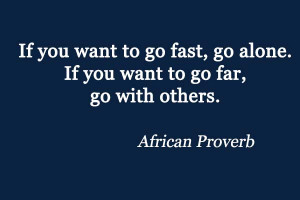
The most valuable resource an entrepreneur has is time, so everything on your schedule should leverage those precious hours. In fact, asking how to connect with other entrepreneurs, clients, mentors or investors is not the question you should be asking. Rather, you should be focusing on why you want to connect with them in the first place.
The end goal of networking isn’t to be as connected to as many people as possible; it’s to connect with the people who can help you overcome obstacles to building your business. In fact, many entrepreneurs go awry playing a volume game, collecting junior board nominations, grabbing multiple coffees a week and attending social events at night. The biggest chunk of your waking hours should be dedicated to building an exceptional product or service, articulating that vision to the marketplace, ensuring operational excellence in all aspects of your business and raising the cash to bring it all to life.
1. Nurture your existing relationships.
People who have worked with you in the past --colleagues, classmates, teammates -- can attest to your substance and skills and can help make things happen for you faster than new acquaintances. Do your best to stay in touch with these contacts for the long haul. You never know when you might be able to tap into them to share an idea or opportunity.
To be successful, you have to be able to relate to people; they have to be satisfied with your personality to be able to do business with you and to build a relationship with mutual trust. - George Ross
To be successful, you have to be able to relate to people; they have to be satisfied with your personality to be able to do business with you and to build a relationship with mutual trust. - George Ross
2. Do your homework.
There are countless outlets for cultivating new relationships: formal conventions, small seminars and low-key meet-ups, to name a few. But before you get in front of a new crowd, do a bit of research as to the leaders, membership and goals of the organization. Then use your time at the event wisely, identifying mutually beneficial projects to collaborate on right away. Working with others, as opposed to just “happy-houring” with them, cements deeper, more lasting bonds.
3. Ask questions.
4. Know your story and make it stand out.
People respond more favorably and more immediately to entrepreneurs who can articulate a company’s trajectory in a compelling narrative. So, when you’re asking new networks for help be prepared to dazzle them with both your concept and conviction. If you don't believe in yourself, then the people you network with won't believe in you.
5. Make every conversation personal.
Human nature compels us to surround ourselves with people we like, so be friendly and don’t make it all about business, especially during the first couple of interactions. A networking event is a farmer event, not a hunter event. You're there to plant seeds and cultivate your garden, not ''bag prey''.
The mark of a good conversationalist is not that you can talk a lot. The mark is that you can get others to talk a lot. Thus, good schmoozer’s are good listeners, not good talkers. - Guy Kawasaki
The mark of a good conversationalist is not that you can talk a lot. The mark is that you can get others to talk a lot. Thus, good schmoozer’s are good listeners, not good talkers. - Guy Kawasaki
6. Pay it forward (Give first ask later!)
Think of ways you can give back to your fellow entrepreneurs, too, whether it’s a fresh point-of-view, relevant industry articles, pivotal introductions or acting as trusted sounding board.

Three Things to Keep In Mind When Networking
1) Be genuine.
Networking isn’t always about making the quick sale. It’s about creating and fostering relationships with people who may need your services down the road. To make these relationships memorable though, you must be genuine. Be honest with people and actively seek out new information about them, their company and their experiences. If you are genuinely interested in others, and not solely there to make a sale, the relationship will be better and will most likely be more fruitful in the long world.
2) Set goals.
Before walking into a networking event, set goals so you can gauge how productive you time was. Your goals should be specific and measurable. For example, “I want to meet at least one person in the construction industry.” Goals can be about specific people you want to meet to either begin or further an established relationship or they can be about certain industries or occupations. One way to ensure that your goals are met is to enlist the help of a “wingman”. Communicate your goals with your "wingman" before the event to have somebody to introduce you to people who help you meet your goals, or can hold you accountable.
3) Follow-Up Promptly
If you struck up a conversation with somebody at a networking event, take the time during the next day to send them an email. Everyone is busy nowadays and taking the time to send an email (or even a handwritten card for extra kudos) means a lot. The follow-up is especially important if you promised that person you would provide them with information or would like to schedule a follow-up meeting.
No comments:
Post a Comment